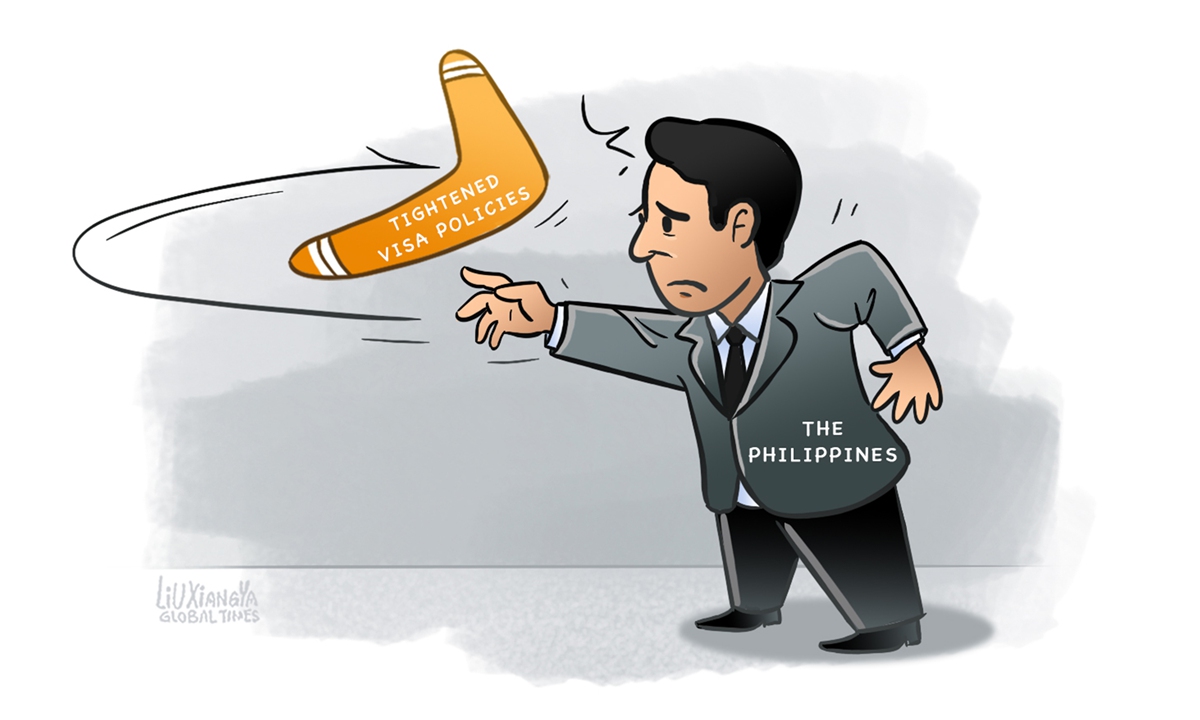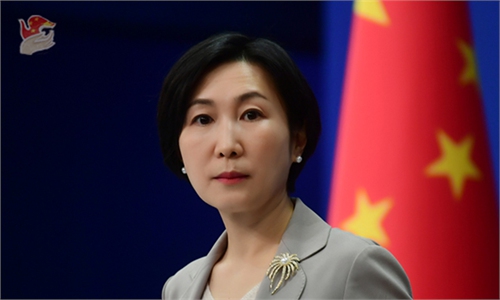
Illustration: Liu Xiangya/GT
Recent reports have drawn attention to a troubling trend: the number of Chinese students enrolling in Philippine universities has declined due to tightened visa policies under the guise of "national security." This has raised concerns among segments of the Philippine public, who warn that such actions could damage the country's education and tourism industries and hinder broader exchanges and cooperation between China and the Philippines. The logic driving this trend is filled with contradictions and short-sightedness. In the name of so-called security, the Philippines appears to be setting limits, thus shutting the door to broader opportunities for growth and development.The move to restrict visas for Chinese students under the guise of "national security" betrays an absurd level of "persecutory delusion." Some local commentators said the decline in enrolment is not just due to the government's stricter visa policy but also the country's current atmosphere of paranoia in which all Chinese nationals are suspected of being spies. This kind of rhetoric and paranoia further dissuade Chinese citizens from considering the Philippines as a destination.
"Analyzing the Philippine government's actions more deeply, it's clear that the US plays a significant role behind the scenes," Chen Xiangmiao, director of the World Navy Research Center at the National Institute for South China Sea Studies, told the Global Times. In recent years, the US has used "national security" as a pretext for imposing technological and academic restrictions on China, even interrogating Chinese students at airports without cause. The Philippines has followed suit; reports showed that a Filipino with a Chinese surname was asked at Philippine airport by immigration officers for a birth certificate and other documents.
Such actions starkly contradict the Philippines' developmental needs.
China has historically been a key partner in the Philippines' economic growth, serving as one of its largest sources of tourists and its second-largest export destination. Yet, this negative rhetoric and harmful policies have significantly contributed to a sharp decline in the goodwill of the Chinese public toward the Philippines, eroding the mutual trust that is vital for their bilateral relationship.
If "national security" and "suspicions of potential espionage" are cited as reasons for these tightened restrictions, who would still choose to place themselves in a country that labels them unwelcome?
Interventions targeting Chinese investors, students, and businesses have created significant barriers to normal commercial and cultural exchanges. More alarmingly, these misguided actions by the Philippine government threaten to derail existing avenues of cooperation, risking a complete reversal of progress. This poses a serious challenge to the stability of China-Philippines relations across political, economic and cultural domains, Chen added.
Even in the US, a global leader in science and technology, there are growing concerns that escalating hostility and "small yard, high fence" policies could hinder its own innovation. For a country like the Philippines, which is urgently in need of accelerated development and industrial upgrades, shutting itself off from a vast neighboring market and countless opportunities for collaboration is nothing short of self-sabotage.
This is especially evident when compared with the practices of other ASEAN countries. According to China's Customs, trade between China and the Philippines fell by 10.31 percent year-on-year in the first four months of 2024. In contrast, trade between China and all ASEAN member states rose by 4.8 percent during the same period. While Vietnam is advancing its economy through collaborative railway networks with China and Thailand is upgrading its infrastructure by participating in the Belt and Road Initiative, the Philippines is busy tightening visa policies, purchasing US-made weapons, and clinging to an imagined sense of "national security."
Even Filipino scholars are saying the Philippines is losing out to its ASEAN neighbors and competitors in educational tourism, foreign direct investment and other exchanges with China.
In an era dominated by openness and inclusivity, if the Philippines continues to languish in "persecutory delusions" and pursue its misguided allegiance to larger powers, it will only find itself increasingly isolated - not only from other ASEAN countries but from many other developing nations as well.


